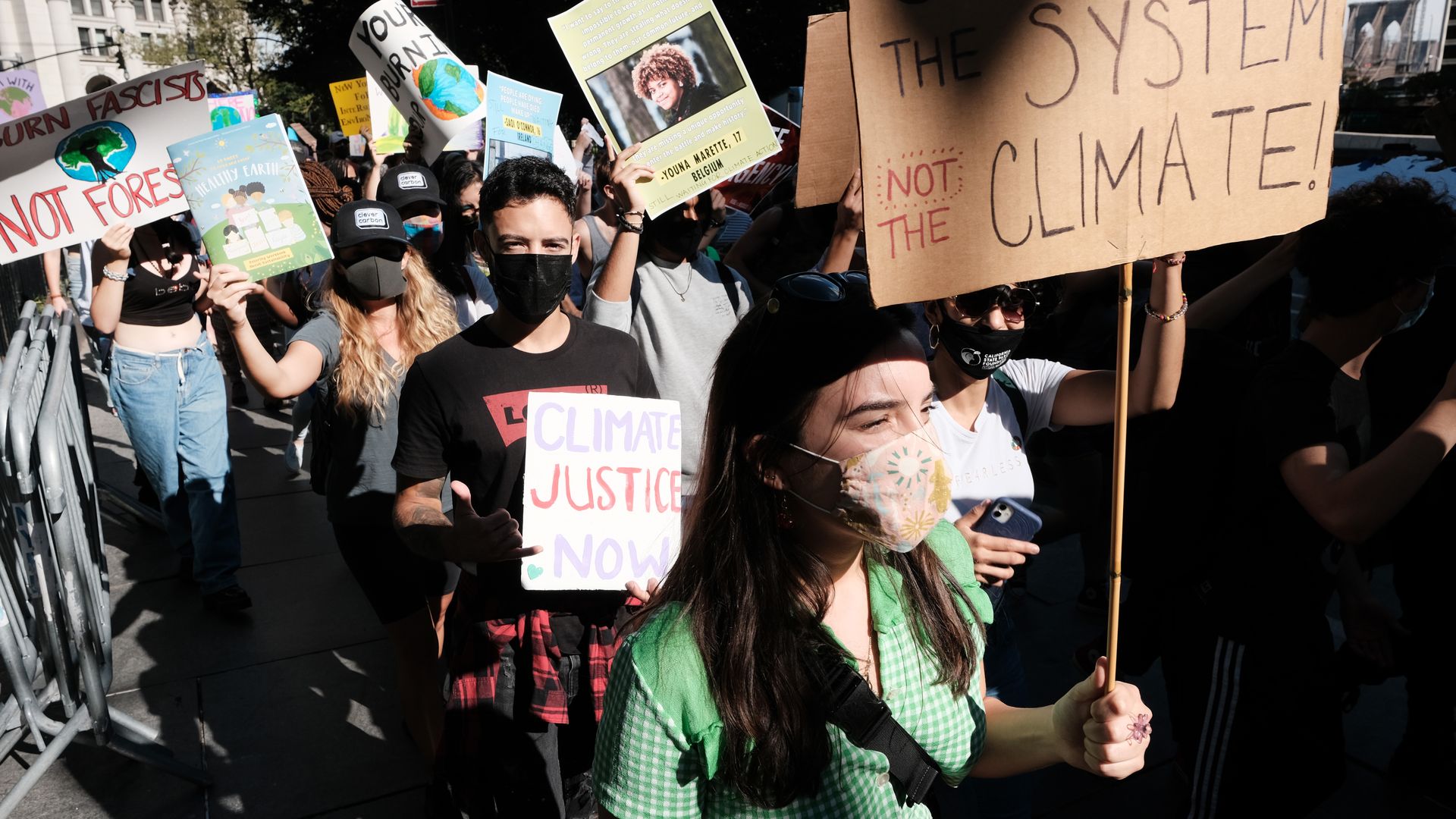Study: Today's children will experience 36 times more heat waves than grandparents

People participating in a climate change strike in New York City on Sept. 24. Photo: Spencer Platt/Getty Images
Children today will likely live through more weather and climate disasters than their grandparents if the planet continues to warm at its current pace, a study published in the journal Science this week estimates.
Why it matters: The study quantifies what is already widely known: extreme weather and climate events will become more common and severe as the planet warms primarily from human influences, like increased greenhouse gas emissions.
How it works: The researchers drew from current international climate policy pledges and climate and demographic models to project how many extreme weather and climate events children today will witness throughout their lifetimes compared to those experienced by previous generations.
- The researchers estimate that a child who was 6 years old in 2020 will see twice as many wildfires and tropical cyclones, around three times more river floods, two-and-a-half times more crop failures, five times as many droughts and 36 times more heatwaves than a person born in 1960.
What they're saying: "Our results highlight a severe threat to the safety of young generations and call for drastic emission reductions to safeguard their future," the researchers wrote.
- This reality has been the impetus behind large, global climate strikes in recent years, which have been largely led by younger people, they added.
The big picture: A large UN-sponsored review of climate science published last month determined that the planet will pass a crucial temperature threshold as early as 2030 — far sooner than previously thought.
- The studies come as world leaders prepare to meet in Glasgow, Scotland, for a UN climate meeting, which is considered pivotal for ensuring that the temperature targets set in the Paris Climate Agreement still have a chance of being met, Axios' Andrew Freedman reports.
Go deeper: WHO revises air quality guidelines to reduce deaths from pollution
